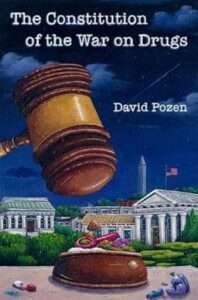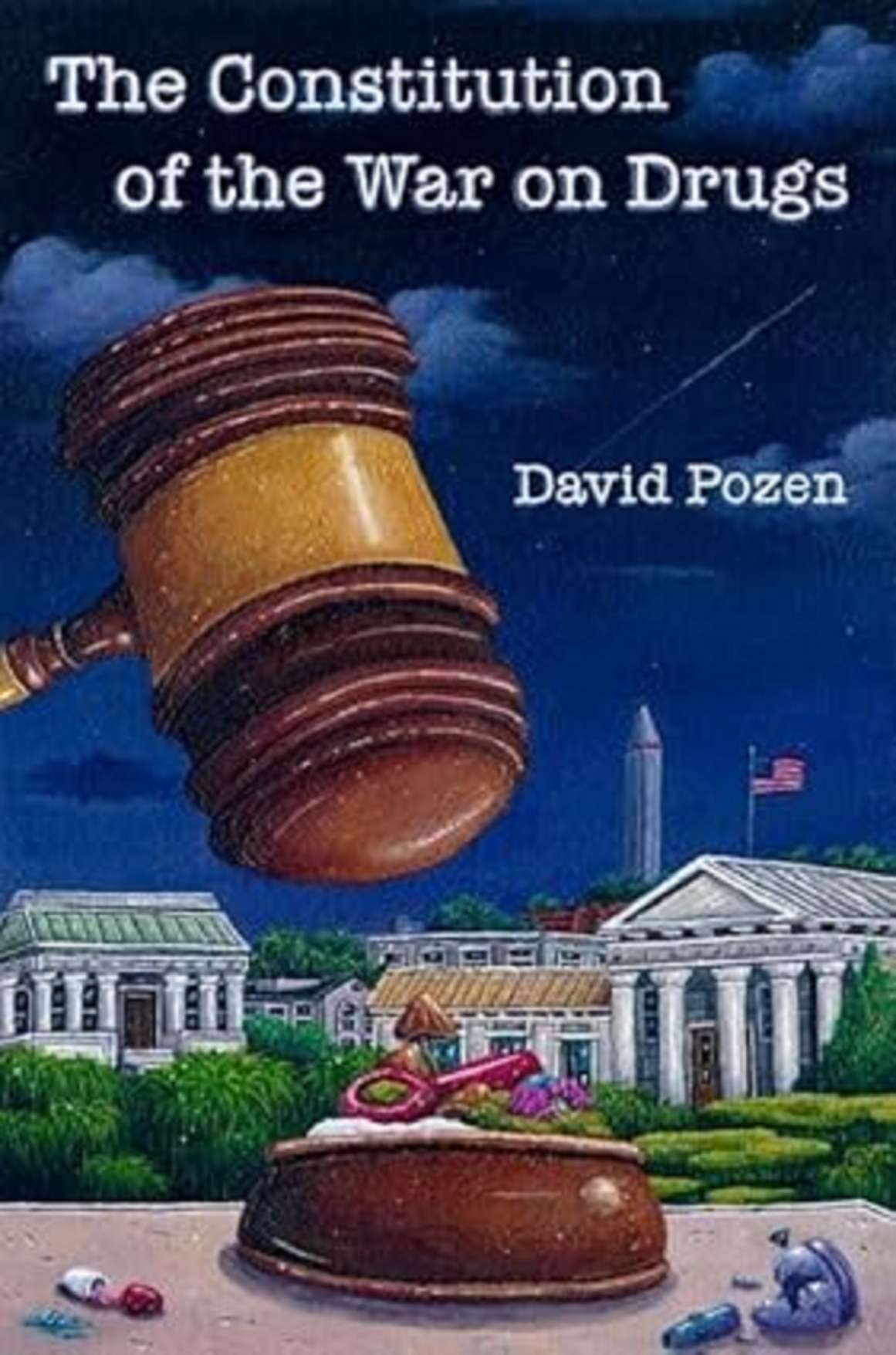
Today the Jotwell website (which reviews new legal scholarship) published my review of Columbia Law Professor David Pozen’s important new book, The Constitution of the War on DrugsThe review is titled “The War on Drugs as a Constitutional Failure.” Here are some excerpts:
If the goals of constitutional law include protecting liberty from government abuses of power, the war on drugs must be viewed as one of America’s greatest constitutional failures. Over the past century, and especially since its expansion with the 1968 Narcotics Act, the war on drugs has resulted in thousands of unnecessary deaths, the incarceration of hundreds of thousands, and severe violations of civil liberties – all without doing much to curb the social problems of drug abuse and addiction. With few exceptions, constitutional law has done little to curb these great evils.
In The Constitution of the War on DrugsIn his book, David Pozen gives us the most thorough and insightful overview of this failure yet. As he shows, there were a number of plausible constitutional arguments for curbing the war on drugs that, if accepted by the courts, could have significantly curbed at least the worst abuses. But for the most part they were rejected. He also offers useful suggestions for drug law reformers’ future strategy.
Pozen’s book is an impressive achievement and contains many valuable lessons for both constitutional lawyers and those interested in the war on drugs and criminal justice. But I have some reservations about both his historical and doctrinal analysis and his normative prescriptions.
As Pozen vividly documents, the constitutional basis for the modern war on drugs was created by two key developments of the Progressive and New Deal eras. The first was an expansion of the understanding of state “police power.” Previously, many paternalistic regulations likely could have been overturned under the Due Process Clause of the 14th Amendment or their federal equivalents. The rise of the anti-gambling and alcohol prohibition movements helped change this by giving courts more latitude to state governments. This undermined potential challenges to drug prohibition from individual rights.
The second major change was the enormous expansion of federal regulatory powers under the Commerce Clause with decisions such as Wickard vs Filburn (1942), giving the government the power to regulate almost any ostensibly commercial activity, no matter how local….
While these early 20th-century developments opened the door to drug prohibition, Pozen explains that some trends in jurisprudence since the 1960s made a constitutional challenge to the war on drugs potentially possible.
Start with … Griswold v. Connecticut (1965), which struck down a state law prohibiting the distribution of contraceptives to married couples, the Supreme Court issued a series of decisions protecting various personal liberties under the Due Process Clause of the Fourteenth Amendment, particularly those relating to procreation and bodily autonomy. This opened the possibility of similarly protecting the right to use illegal drugs.
Later, a more conservative Supreme Court again began to limit the authority of the Federal Commerce Clause, beginning with United States v. Lopez (1995). This raised the hope that at least some forms of drug prohibition could be invalidated at the federal level because they were beyond the power of Congress.
Unfortunately, none of these approaches were particularly successful …
But Pozen’s otherwise thorough account wrongly neglects an important aspect of the story: the fact that the harshest penalties in the war on drugs are usually reserved not for people guilty of merely using or possessing drugs, but for those who produce, sell, and distribute them. Since the New Deal era, left-liberal jurists—and even many conservatives—have been suspicious of strict judicial review of “economic” regulations. This was at the root of both the New Deal’s Commerce Clause revolution (which dismantled federalist limits on Congress’s power) and the Supreme Court’s rejection of judicial protection of most economic liberties and property rights.
To seriously curb the war on drugs, the courts would have had to overcome their aversion to reviewing “economic” regulations. Progressives who (rightly) call for greater judicial oversight of the war on drugs must overcome at least some of their scruples about judicial review of economic transactions….
The review also identifies some potential avenues for future progress and calls on opponents of the war on drugs to combine legal action with political action.
The war on drugs is one of the greatest injustices in American politics and one of the greatest constitutional problems of our time. Pozen’s book is an important contribution to our understanding of the relevant history and legal doctrine.

